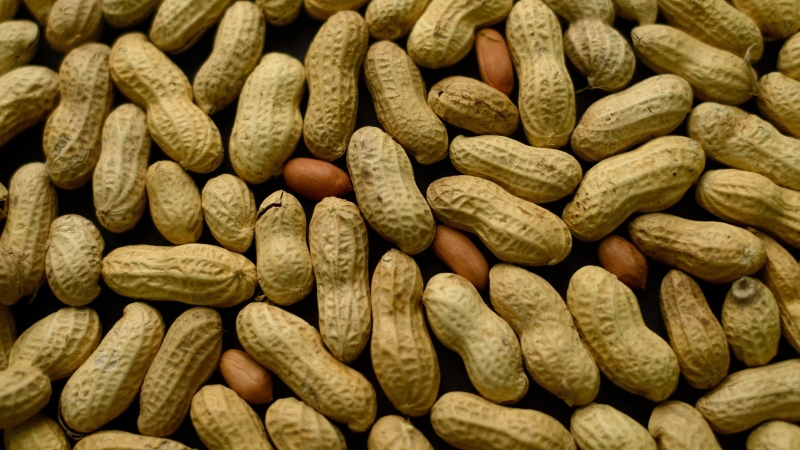(单词翻译:单击)
The US has approved its first treatment for peanut allergies in children.
美国首次批准治疗儿童花生过敏。
The drug AR101, or Palforzia, uses oral immunotherapy, with children given tiny but increasing amounts of peanut protein over a six-month period under medical supervision.
这个药物叫作AR101,或Palforzia,采用口服免疫疗法,六个月的医学观察期内可以给儿童少量花生蛋白,并逐渐加量。
After that, users must continue to take a daily dose to be able to tolerate accidental exposure.
然后,服药者必须每天坚持吃点,以便在意外接触花生时能挺住。
The treatment is not a cure and makers warn that the risk of a potentially fatal anaphylactic reaction remains.
这一疗法不能根治,制药商警告说依然存在潜在致命过敏反应。
And patients must continue to avoid peanuts in their diet.
病人饮食依旧不能含有花生。

Peanuts are the most common food allergen in the US, with an increase in the number of those affected by food allergies across the West in recent decades.
花生是美国最常见的食物过敏原,近些年在西方受食物过敏影响人数有所上升。
While trials to desensitise patients with peanut allergies have previously taken place in the US and elsewhere, the drug is the first to be approved by the US Food and Drug Administration (FDA). The drug has not yet been authorised for use in the UK.
虽然此前美国和其他地区进行过花生过敏患者的脱敏试验,但这是首个经美国食品药品监督管理局批准的药品,但在英国尚未获准使用。
Palforzia, which has been approved for use in patients aged between four and 17, comes in the form of a powder which is sprinkled on food.
Palforzia药物获准用于4至17岁患者的治疗,以粉末形式洒在食物上。
Last year, scientists at King's College London said that oral immunotherapy offered "protection but not a cure" for peanut allergies, with treatment only effective while patients continued taking small amounts of the allergen.
去年伦敦国王学院的科学家说口服免疫疗法对于花生过敏者只能“起到保护作用,却不能根治”,而且患者要一直吃少量过敏原食物这种疗法才有效。


